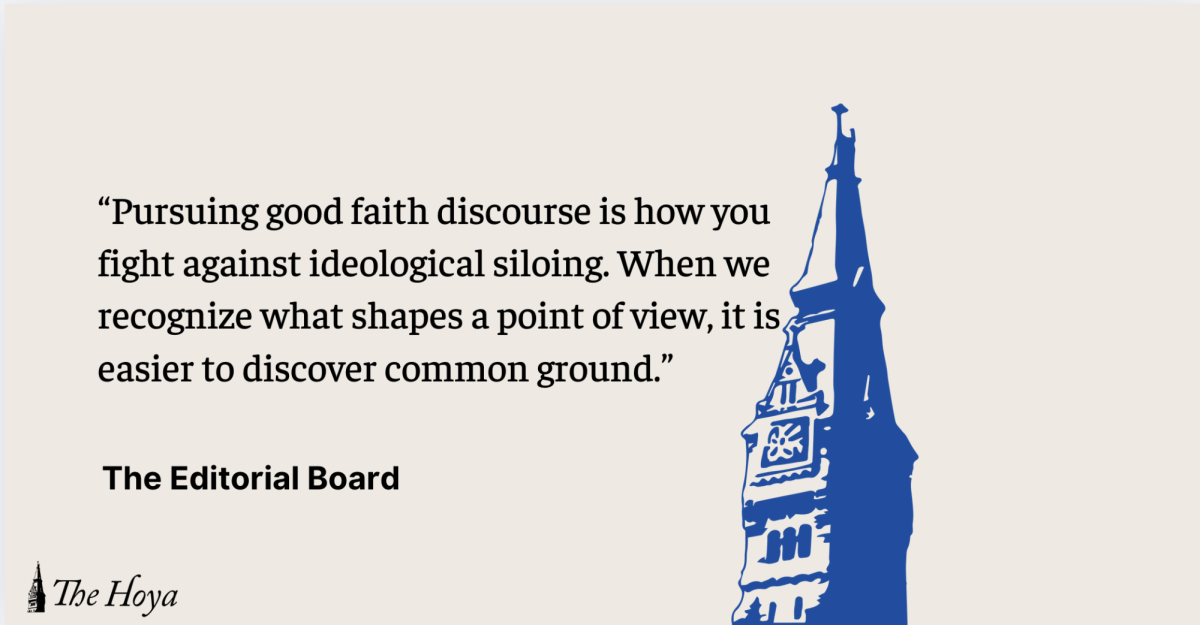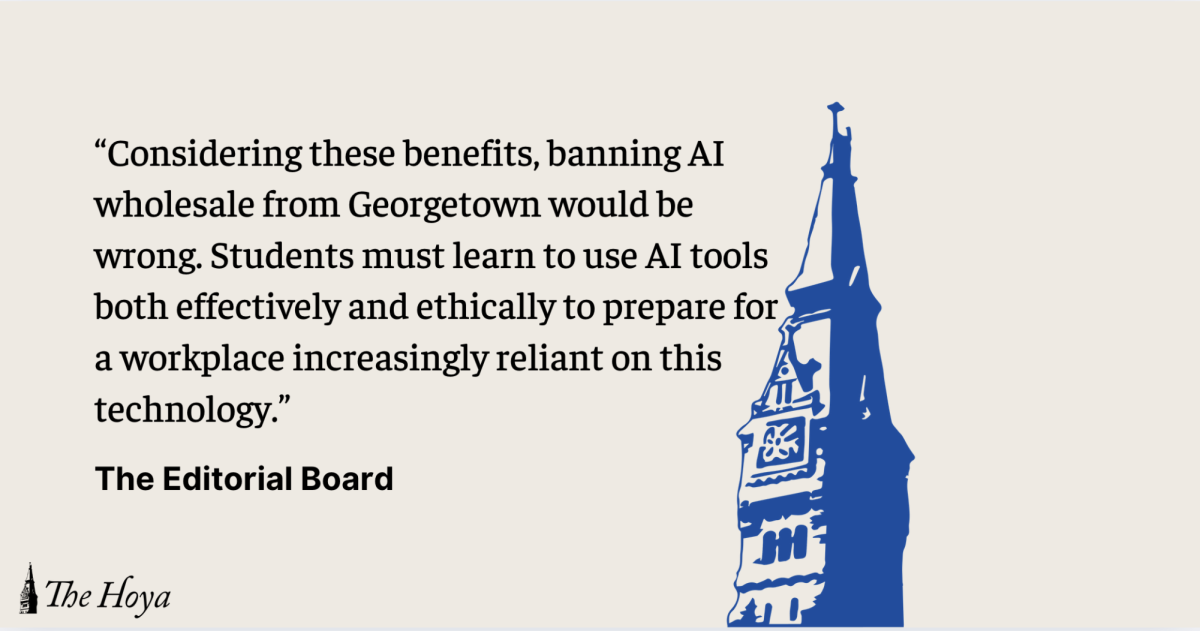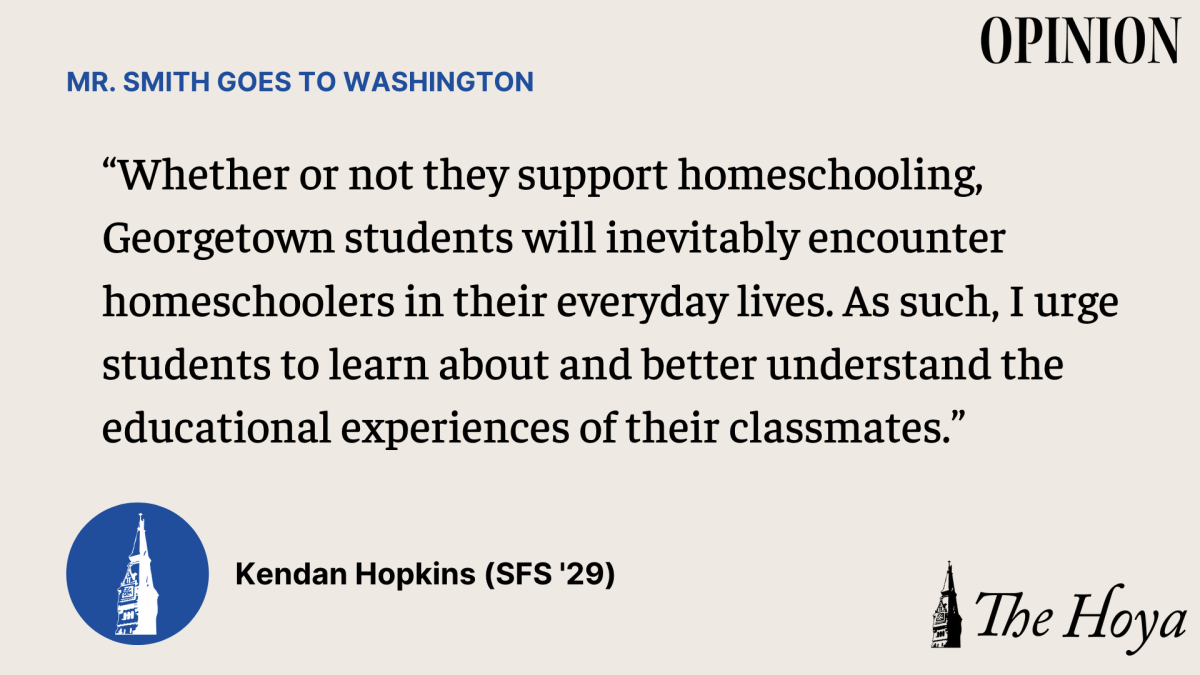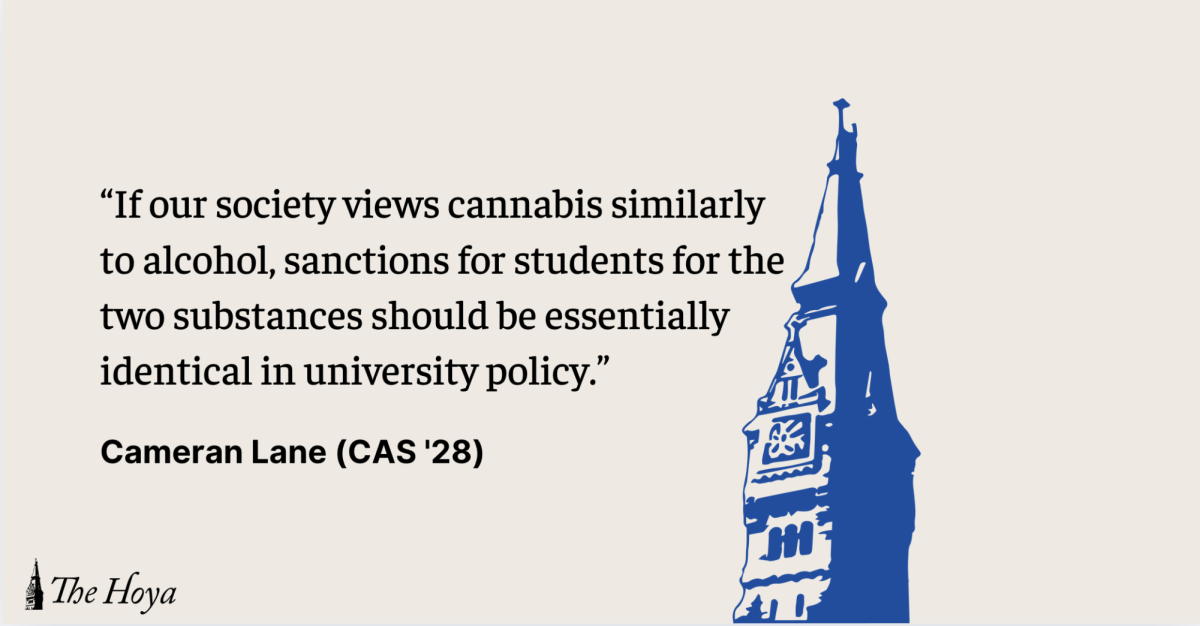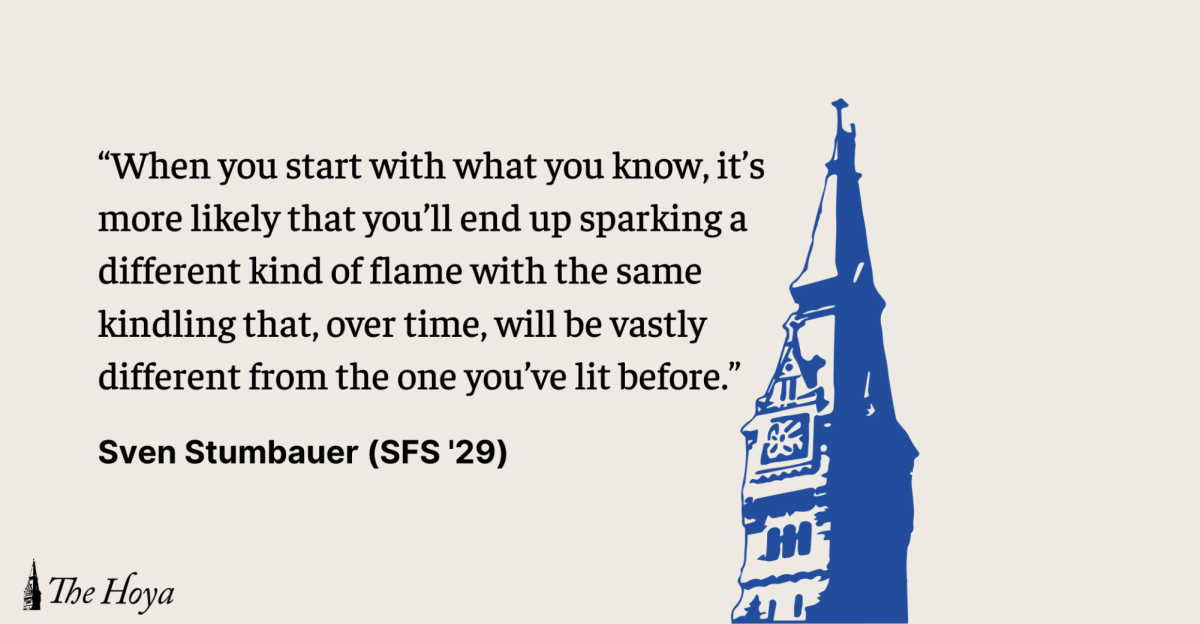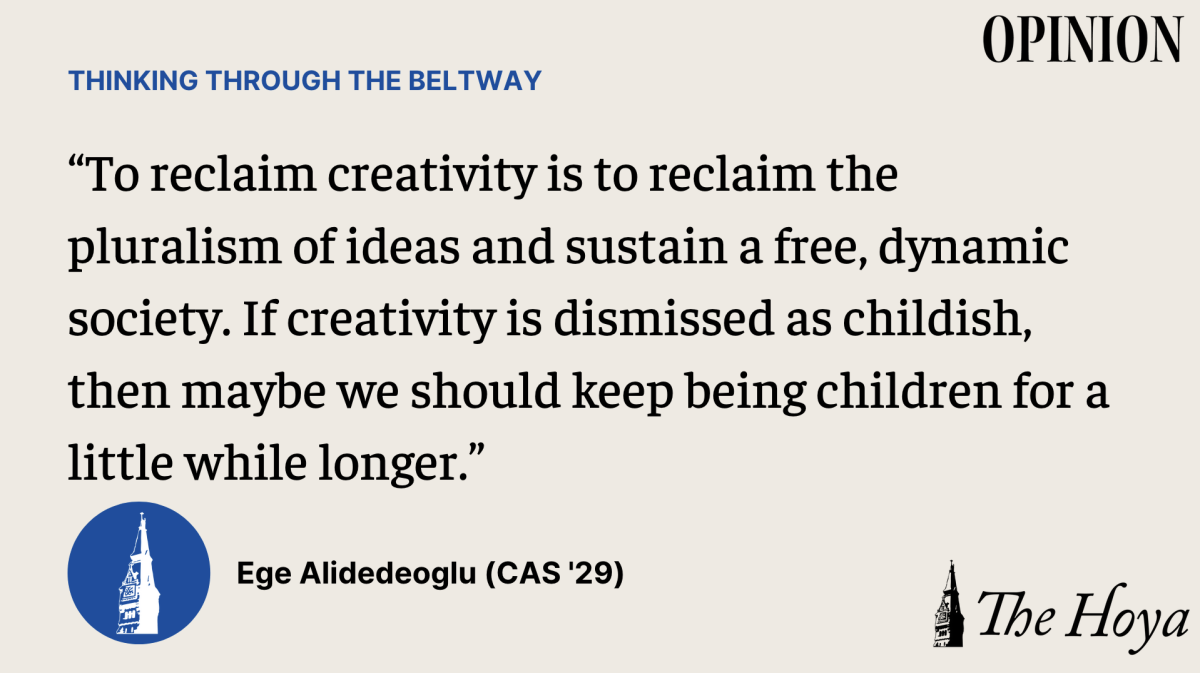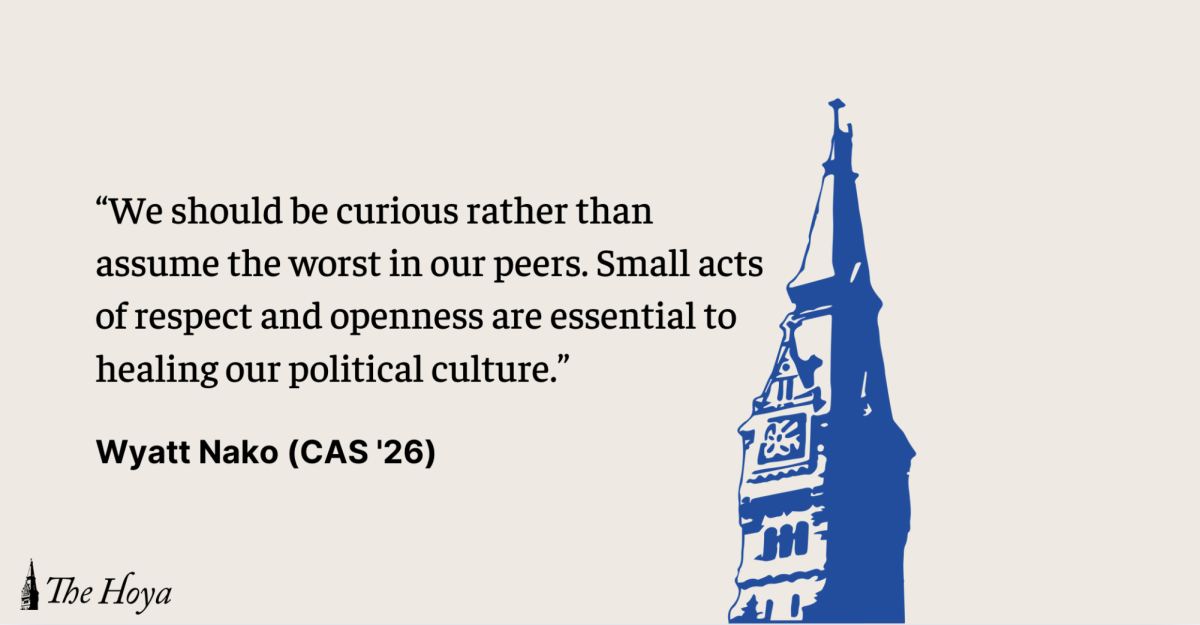The United States hosts a horrific history of political violence — a history bleeding into the present.
The Sept. 10 killing of conservative political activist Charlie Kirk on a college campus follows an uptick of political violence across the country. Just this past year, the country has seen the high-profile shootings of two Minnesota state lawmakers, an act of arson at Pennsylvania Governor Josh Shapiro’s home and two assassination attempts on President Donald Trump.
Political violence is not a problem exclusive to one political ideology — its contributions to the backsliding of stable democracy are universally damaging. It is never permissible.
An assassin killed Kirk while he was on a university campus, a place purported to promote open and free dialogue. At Georgetown University, a place where Kirk visited five years ago to speak about Trump’s first term, free speech and activism are well known among students.
If we wish to work towards the ideal of free speech in U.S. politics, students must fight polarization on campus and beyond.
The Editorial Board strongly condemns any reaction that celebrates or weaponizes this murder. Some point to Kirk’s statements about the Israel-Hamas war to warrant his death, while others — including Vice President JD Vance — blame an alleged vast left-wing terrorism network. Either way, calling this anything other than a tragedy diminishes the fundamental loss of life.
The on-campus reaction was commendable at first. The Georgetown University College Republicans (GUCR), Georgetown University College Democrats (GUCD) and Georgetown Bipartisan Coalition (GBC) issued a joint statement in the aftermath calling for an end to political violence.
“There is absolutely no place, nor any justification, for any form of political violence in America,” the groups wrote.
The Editorial Board strongly supports this message.
At the same time, we deplore the incendiary post that GUCR published a day later, largely defeating the purpose of a joint statement. In the statement, GUCR attributes the rise in political violence to the left.
“This heinous act further enlightens the troubling increase of political violence in our country, fomented by polarizing actions from the left,” the group wrote.
It is impossible to discuss this issue without acknowledging the inflammatory nature of Kirk’s rhetoric — in many ways, he enabled the current era of political polarization. On Jan. 6, 2021, when thousands of Trump supporters marched in Washington, D.C., protesting the certification of the 2020 election results, Kirk funded travel expenses for 80 busloads of protesters. Many of these protestors went on to storm the U.S. Capitol in the ensuing insurrection.
Cosmo Salicone (SFS ’28) — director of community at Georgetown’s chapter of BridgeUSA, a youth movement to fight political division — said Kirk’s style was often not conducive to productive discussion.
“While Charlie Kirk did create opportunities for students to engage in cross-ideological discussions, his style generally fostered argumentative and heated debates rather than meaningful conversations,” Salicone wrote to The Hoya.
Still, the Editorial Board recognizes that Kirk attempted to create political discourse on college campuses. Though it regrettably took the form of “culture wars” and rants against diversity initiatives, Kirk’s willingness to be challenged went beyond many other political figures. He often manned a “Prove Me Wrong” table and invited students to challenge his political views.
Jordan Van Slingerland (SFS ’26), president of the Tory Cohort in the Philonomosian Society, said Kirk’s debating model encouraged dialogue and interaction between opposing viewpoints.
“What Charlie did day-in, day-out, may be one of the best antidotes to what I see as a ‘pandemic of non-engagement’ from many left-wing organizations on this campus with their conservative counterparts (that being the lack of willingness to engage with conservatives),” Van Slingerland wrote.
Students should appreciate this willingness to be challenged. Politically, Georgetown remains largely homogenous: A 2024 survey found that students were over six times more likely to identify as liberal than as conservative. In largely homogenous places like Georgetown, it is easy for students to remain in conversations with like-minded people. However, each student has the power to seek out differing viewpoints, breaking these echo chambers.
Instead of conversing with the aim of changing someone’s mind, invite dialogue for the sake of learning. Often, as Kirk did, we listen to the opposing side so we can refute arguments without considering their reasoning. Pursuing good faith discourse is how you fight against ideological siloing. When we recognize what shapes a point of view, it is easier to discover common ground.
On campus, there are many ways that Hoyas can improve upon how they engage with differing views.
Attend a debate society meeting, even if the prospect of speaking up overwhelms you. Debate societies offer a wide range of viewpoints, and hearing from multiple perspectives in real-time can be illuminating.
Ask questions when you don’t understand the reasoning behind a stance. The political organizations on our campus table in Red Square for a reason — they make themselves visible so you can use them as a resource.
William Mead-McCaughan (CAS ’27), who has tabled for multiple organizations, said he believes the practice helps drive necessary campus discourse.
“Tabling allows differing views to be visible, in the same place, and at the same time,” Mead-McCaughan wrote. “It encourages conversation.”
The Hilltop also offers a myriad of speaker events and discussion groups. Even if you disagree with the speaker or the issue, go to these events. There is nothing to be lost and everything to be gained from open conversations.
Above all, approach opposing viewpoints with respect. The only way to fight polarization is through understanding and empathy, not increased argumentation and division.
The Hoya’s Editorial Board is composed of six students and is chaired by the opinion editors. Editorials reflect only the beliefs of a majority of the board and are not representative of The Hoya or any individual member of the board.


